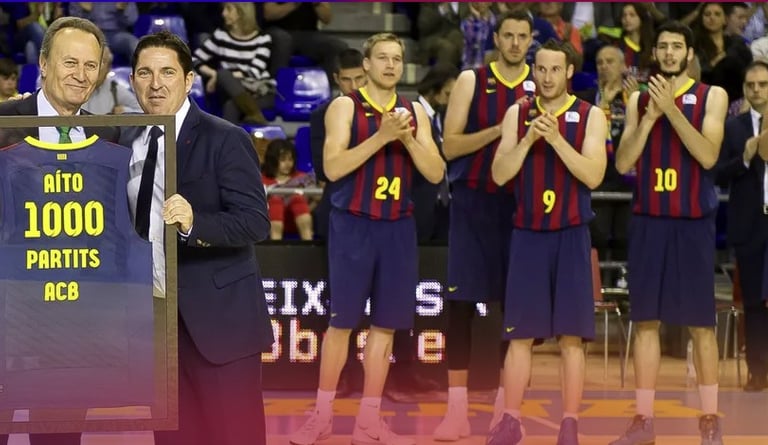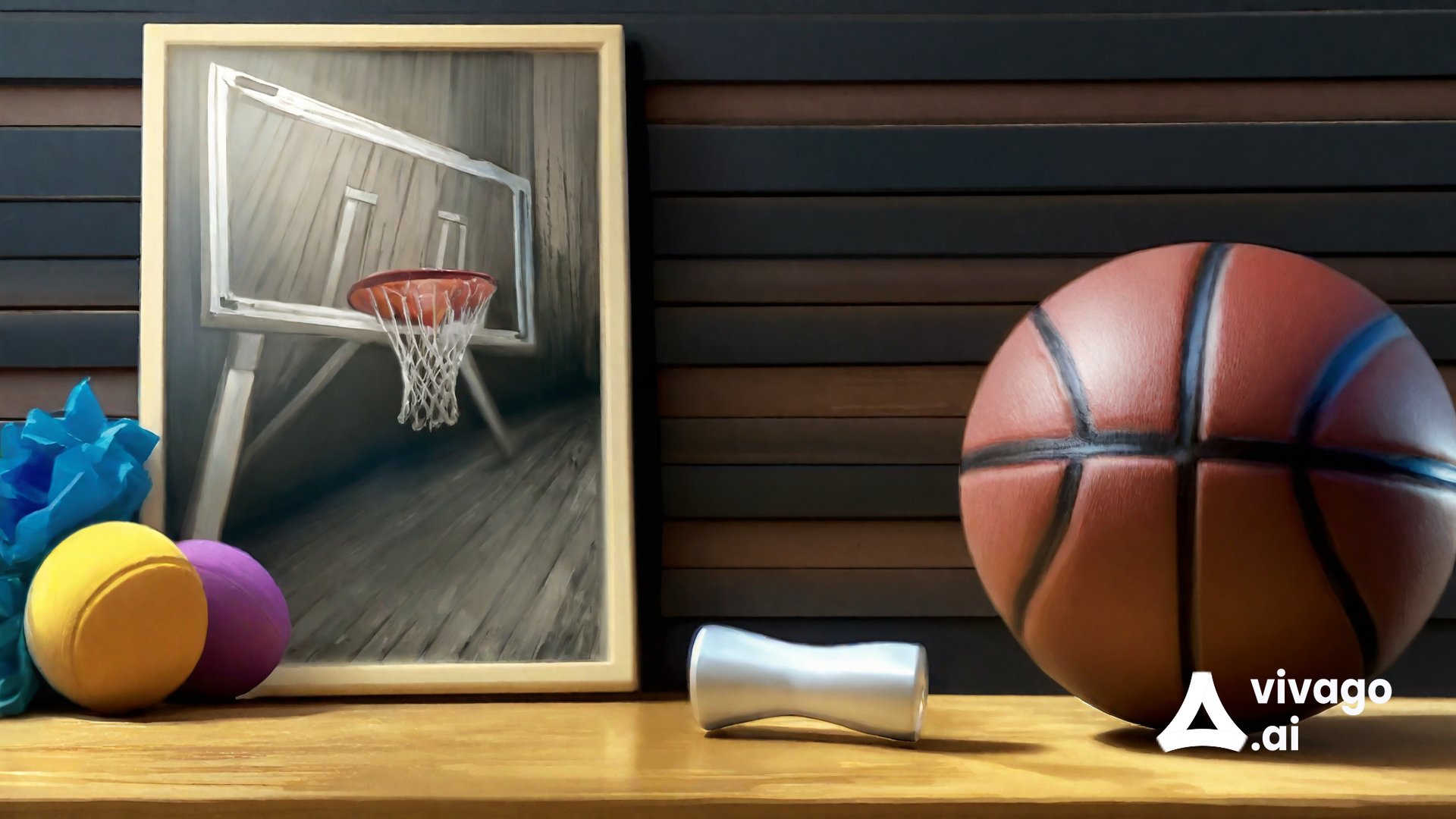
Aíto García Reneses
"Criminally Underrated "
RETROCOACHES
Antreas Tsemperlidis
5/30/20254 min read
His fellow coaches from his generation have either passed away recently or are enjoying retirement in Greece, Italy, and Montenegro. The late Ivković and Ioannidis, Bianchini, and Tanjević have all stepped away from the game, but he, at 77 years old,continues to build teams, chase trophies, and give young players the chance to show what they can do. Just last season in the ACB, he coached the newly promoted Girona and became the oldest coach in the history of the Spanish league, surpassing 73-year-old Svetislav Pešić. Not so long ago he was in charge of a youthfull Alba Berlin team in the Euroleague, but these are just his latest efforts with the blessed few of basketball youth. These efforts go far back in time!
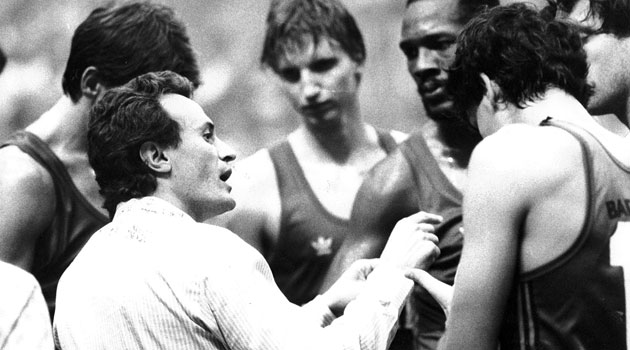

So what title can we give to a man with a career spanning six decades, who first sat on a bench at age 27, who has won sixteen (16) national trophies and five (5) European titles, participated in six Final Fours and three Champions Cup finals, and to top it all off, owns an Olympic silver medal? Loser, amateur, clueless are just a few of the flattering nicknames the "all-knowing' fans have at times hurled at Aíto García Reneses. With all this, one of the most important European coaches of all time has frequently been dismissed as "not up to par" simply because, in our view, he HAD to win the European championship trophy, disregarding all of his other accolade.
Fair enough—no one, not even Aíto himself, denies that missing out on the biggest club trophy stings. He wanted it, chased it, fought for it with passion. He reached a level that hundreds of coaches won't touch even once in ten careers, and Aíto did it in one. A career that began in 1973 with Cotofinicio Badalona, when the 27-year-old “slow and bad shooter” (in his own words) decided to end his playing days as a point guard at Barcelona and take a seat on the bench.
His coaching was expressed through the pressing defense his team played—famously dubbed “karate press” and through developing players like Andrés Jiménez while establishing the team as a top-five presence in the Spanish league. That earned him the ticket to Joventut Badalona in 1983.
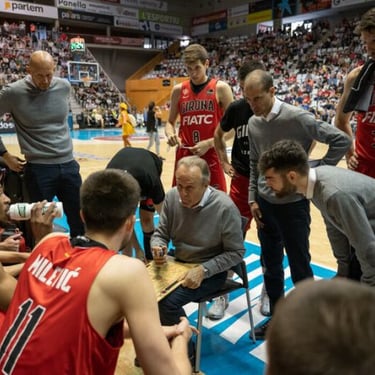
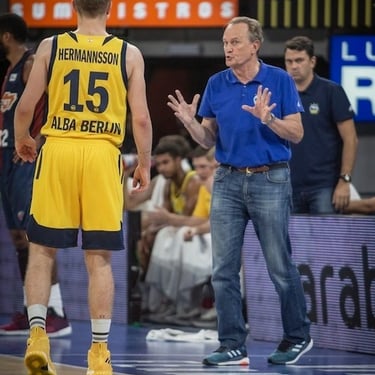
After two seasons on the green side of Barcelona, he crossed the Rubicon and took the helm at FC Barcelona, claiming his first major title: the Cup Winners' Cup in 1986, followed by the Korac Cup in 1987. Four consecutive league titles from 1987 to 1990 gave him the right to contest the Champions Cup, but the remarkable Yugoplastika team proved an insurmountable obstacle both in Munich and Zaragoza.
After the 1990 Final Four, Reneses stepped back, and management brought in Maljković, believing he was the man to dethrone the Yugoslav giants. Aíto became a technical advisor, but he and Boža never clicked. When Barça failed again in Paris, the knives came out, and both blamed each other for missing yet another Champions Cup.
Maljković left for France in 1992, and Reneses came down from the stands to rebuild a team that could finally bring the coveted trophy to Catalonia. Serbian coaches would again be his nemesis—first in Tel Aviv, losing a semifinal to Obradović’s Joventut, and later in 1996-97, against Greek teams. In Paris, he came the closest he ever did, only for Stojan’s hand to swat the title away, and the following year in Rome, Ivković’s Olympiacos left no doubt.
He remained at Barcelona until 2002, winning another Korac Cup in 1999 before returning, after nearly two decades, to rival Joventut Badalona to restore their top-tier status. With a limited transfer budget, Aíto turned to the club's youth academy and placed his faith in young players. He promoted 17-year-old Rudy Fernández and 15-year-old Ricky Rubio to the senior team, nurtured them under competitive pressure, and won the FIBA Cup in 2006 and the EuroCup in 2008. Before heading to the NBA, both players praised their coach’s role in their development.
Ricky and Rudy are just two names from a long list of players who debuted under him, including Rafael Jofresa, Andrés Jiménez, Pau Gasol, Juan Carlos Navarro, Kristaps Porziņģis, and Tomáš Satoranský, among others.
The Spanish federation entrusted him with the national team at the Beijing Olympics, where his finely tuned Furia Roja went toe-to-toe with the American Redeem Team, narrowly missing the gold in a legendary final. After Beijing, he coached Unicaja Málaga and then Sevilla, brought Gran Canaria into the top eight three years in a row, and won their first-ever title, the 2016 Supercopa. Then, in 2017 at age 71, the tireless basketball lifer dared to test his mettle outside Spain, moving to Berlin to coach Alba until the summer of 2021.
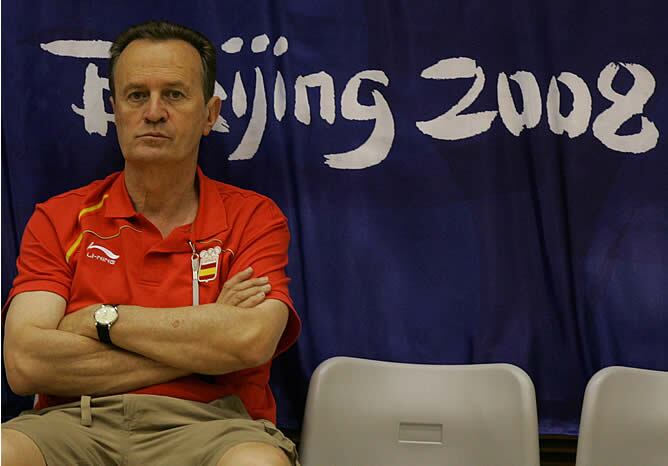
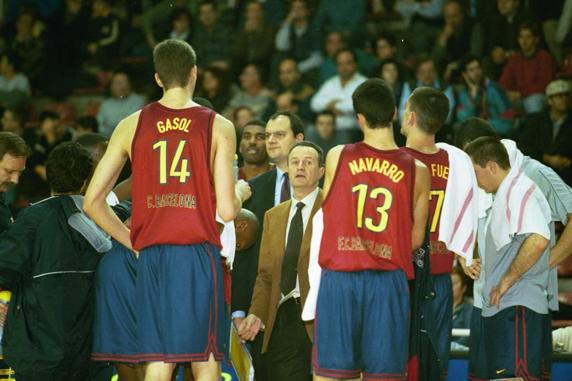
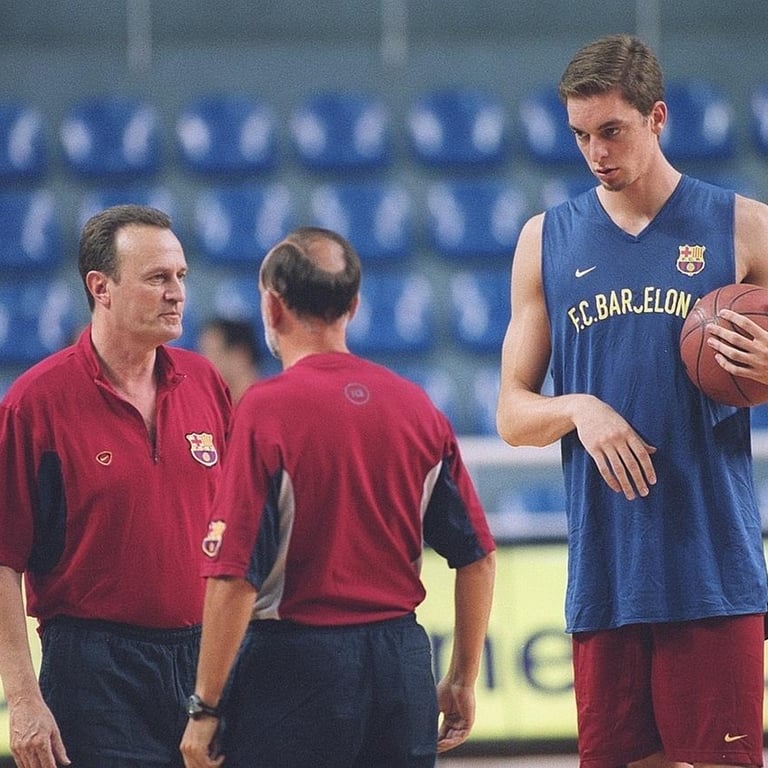
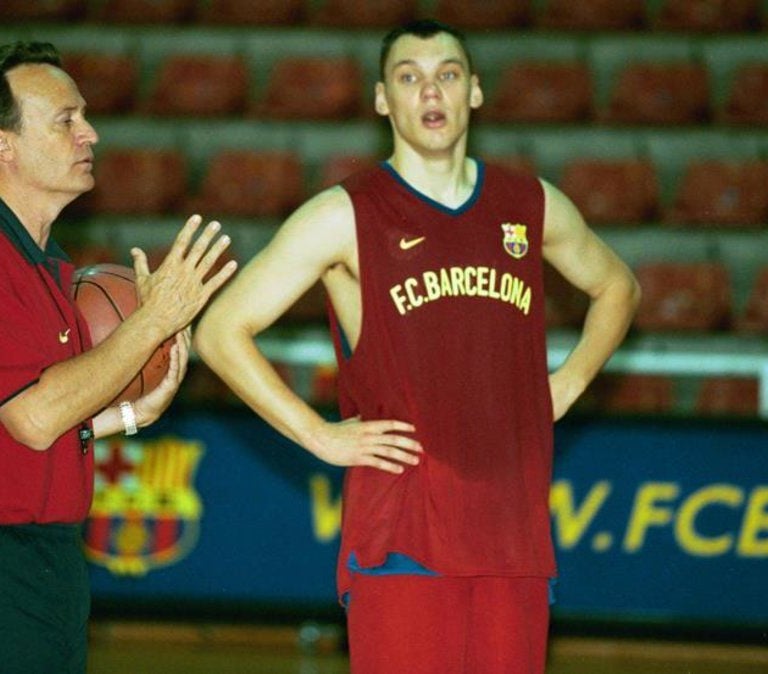
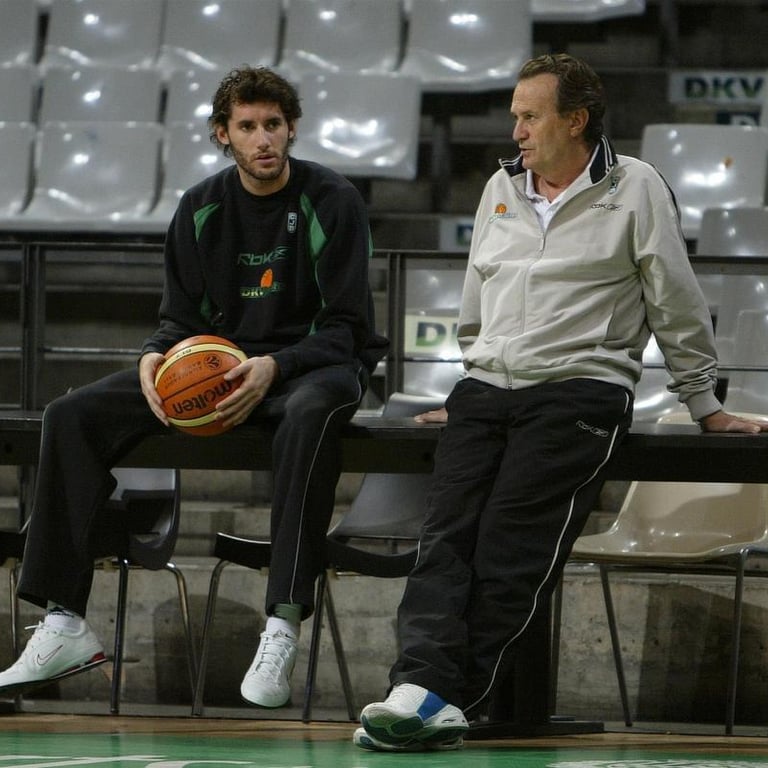
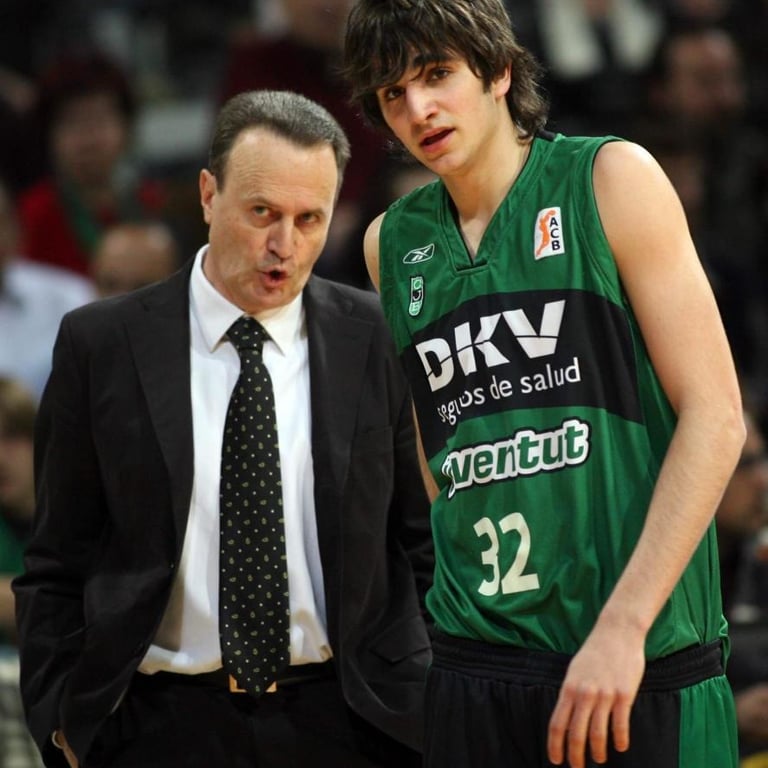
A visionary and pioneer—in the ’80s and ’90s, when starters played all 40 minutes, Aíto was rotating full rosters—he is a true gentleman on the sidelines, always calm and never exploding at referees, a true teacher of the game. “Don Alejandro,” as he’s affectionately called, wears as his greatest medals the development of dozens of players and the creation of competitive teams from scratch.
Not bad at all, for a great coach who, for some—hopefully very few—still remains a loser, an amateur, or clueless…
P.S. A largely unknown story that reflects Reneses' multifaceted contribution to Spanish basketball:
Besides being a coach, Aíto is also a trained electronics engineer specializing in telecommunications, graduating from the University of Barcelona while playing for Barça.
At the time, the Spanish federation had imported the first electronic scoreboards from the U.S., but due to high costs, there were very few available. Reneses studied their functionality and developed a more cost-effective production method, which he presented to officials. The proposal was accepted, and soon Spain’s indoor arenas were equipped with domestically produced electronic scoreboards. A trademark of Iberian basketball, the famed Spanish fast break had found a new ally…
